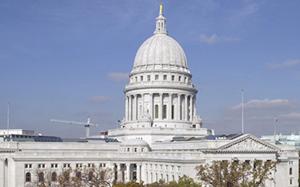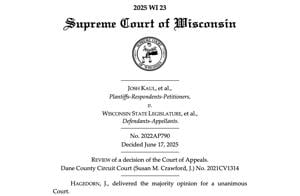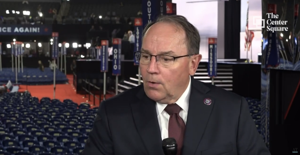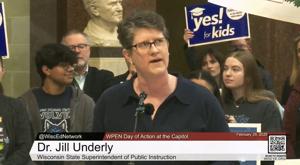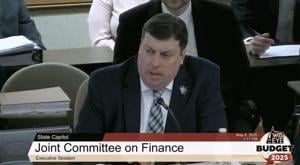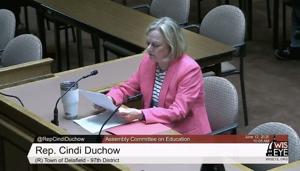(The Center Square) – Wisconsin Senate Sergeant at Arms Timothy La Sage announced his office will be enacting “a series of enhanced security protocols” at the state capitol starting this week.
The increased security measures, in coordination with the Wisconsin Capitol Police, will include increased situational awareness practices, strengthened access control points and updated emergency response protocols, according to La Sage’s office.
“The safety of those who serve, work and visit the Capitol is my top priority,” La Sage said in a statement. “We remain vigilant and prepared. These enhancements are part of our ongoing commitment to security and public service.”
The security changes come after a shooter killed Minnesota House Speaker Emerita Melissa Hortman and her husband and injured state Sen. John Hoffman, DFL-Brooklyn Park, and his wife on Saturday.
Minnesota police allegedly recovered the shooter’s writings, which included the names of 11 Democratic Wisconsin lawmakers, as first reported by Milwaukee Journal Sentinel.
While the report could not be verified by Minnesota’s Bureau of Criminal Apprehension at the time of publication, Sen. Jamie Wall, D-Green Bay, acknowledged the existence of the hit list while confirming he is not on the list, as first reported by Fox 11 News.
“I know the names of a few people on it, but we’ve been very strongly advised by law enforcement not to talk about those people,” Wall said.
Wall added the people who are on the list know they’re on the list and are undergoing appropriate security measures.
La Sage, who was elected Senate Sergeant At Arms by the Senate on Friday, said specific capitol security details would not be disclosed publicly.
La Sage said Senate leadership would work closely with law enforcement to “assess risks and make necessary adjustments in real-time.”
While the public will still be able to visit the state capitol, they are encouraged to follow all posted signage and new security procedures, according to La Sage.
La Sage declined to respond for comment on how long new security measures would be in place and whether or not they would remain until the summer recess.
Assembly Sergeant at Arms Anne Byers told The Center Square that she is also working with Capitol Police to implement security measures for the Wisconsin Assembly, although her office has not made a public announcement regarding security changes.
Luke Wolff, a spokesman for Assembly Speaker Rep. Robin Vos, R-Rochester, told The Center Square that Vos’ office has requested extra security presence for the Assembly floor session Wednesday.
